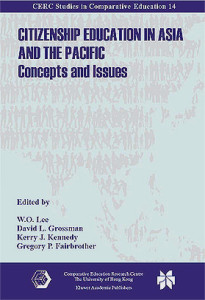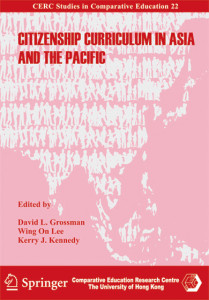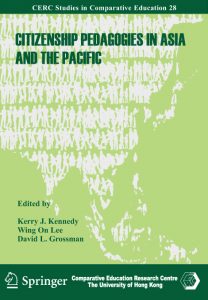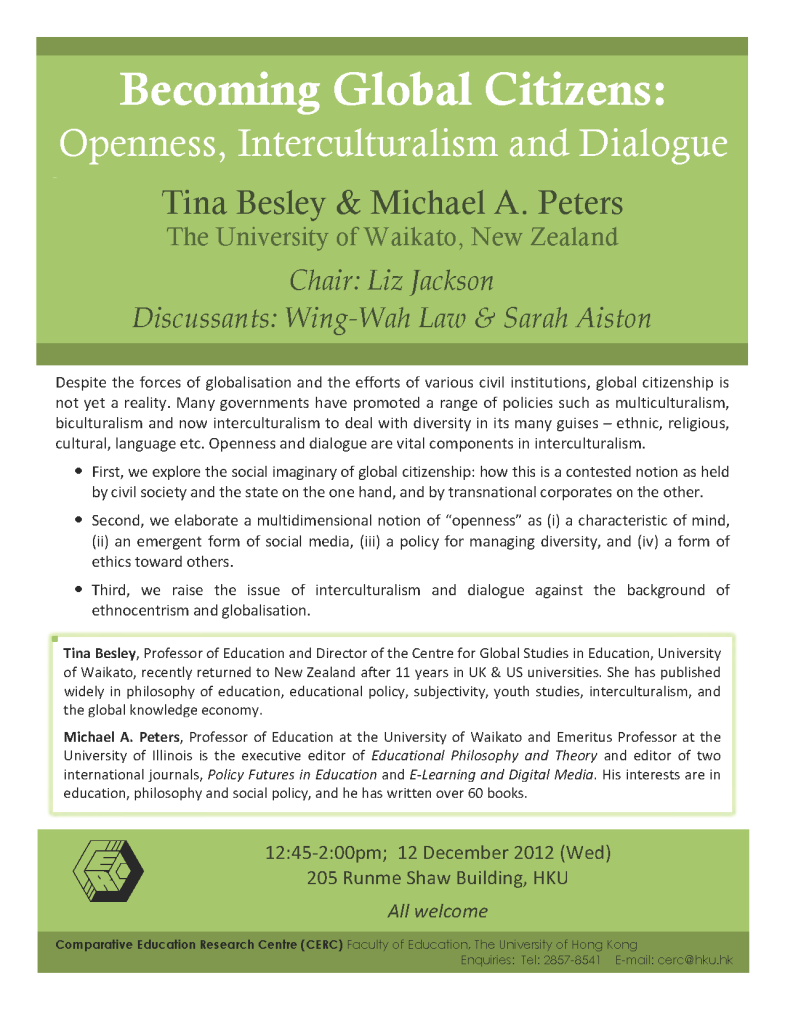Return to CERC Studies in Comparative Education.
 Edited by: W.O. Lee, David. L. Grossman, Kerry J. Kennedy & Gregory P. Fairbrother
Edited by: W.O. Lee, David. L. Grossman, Kerry J. Kennedy & Gregory P. Fairbrother
2004, 313pp.
ISBN 10: 962-8093-59-2
ISBN 13: 978-962-8093-59-5
HK$200 (local), US$32 (overseas)
Published by Comparative Education Research Centre (CERC) and Kluwer Academic Publishers
Order from CERC, Springer, or online.
Preview on Springer or Google Books
This book is a landmark in citizenship and citizenship education discourse. It combines conceptual debates with case studies on the question whether the notion of Asian Citizenship can be established, and if yes, what its research agenda would be. The book contains polemic discussion, empirical data analysis, consultancy reflections, and descriptions of citizenship education in Asian and Pacific countries. Its themes include citizenship paradigms, democratization, patriotism, social tolerance, globalization and information society, and colonialism. The volume explores various perspectives on citizenship, including Confucian, Islamic, humanist, global, indigenous, cultural, political, and comparative. The book covers a wide range of countries and regions, including China, Japan, Hong Kong, Korea, Indonesia, Malaysia, Singapore, Solomon Islands, Taiwan and Vanuatu.
W.O. Lee is Professor and Head of Department of Educational Policy & Administration and Co-Head of Centre for Citizenship Education at the Hong Kong Institute of Education (HKIEd). David L. Grossman is Dean of the School of Foundations in Education, and Co-Head of the Centre for Citizenship Education at the HKIEd. Kerry J. Kennedy is Head of the Department of Curriculum & Instruction at the HKIEd. Prior to that he was Pro Vice-Chancellor (Academic) at the University of Canberra. Gregory P. Fairbrother is a researcher with the School of Foundations in Education and the Centre for Citizenship Education at the HKIEd.
















